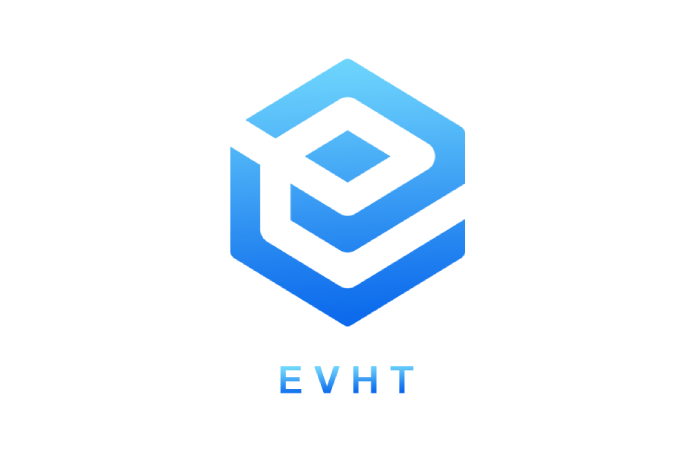The latest in blockchain tech upgrades, funding announcements and deals. For the period of Aug. 29-Sept. 4.
Monday, Sept. 2
Parlay Labs, Building a Meme Coin Launchpad, Begins $2M Funding Round Led by DNA.fund
Parlay Labs has begun a $2 million funding round led by DNA.fund, launching the Parlay platform, a multichain, no-code memecoin launchpad and trading platform. According to the team: “Parlay supports networks like Ethereum, Base, and Avalanche, aiming to democratize crypto access with user-friendly tools, including safe-mode launches and real-time chat for token discovery. The investment brings expertise from DNA.fund founders Brock Pierce and Scott Walker. Founded by Alex Mascioli and Nick Mancini, Parlay Labs focuses on making token creation and trading accessible, with plans to add more blockchain networks soon.”
Radix Chooses Hedge Fund Firm Brevan Howard to Manage XRD-Denominated Endowment Fund
RDX Holdings and Radix Foundation,supporting the Radix distributed ledger, has selected Brevan Howard Digital, an affiliate of the hedge fund Brevan Howard, as the manager of a new endowment fund. “Brevan Howard Digital has been selected as the investment manager to implement the core strategies that have been prioritized by the various boards responsible for the fiduciary management and control of the relevant Radix assets,” according to a blog post. Radix announced the planned creation of the 1.5 billion XRD ($37 million) Endowment Fund last month, as reported in Protocol Village at the time. The team said then that “the fund is intended to support long term ecosystem growth while securing financial support for the entities involved in the development and growth of the Radix platform and ecosystem.”
Quai Announces $5M Strategic Funding Round Following Release of Mainnet-Compatible Devnet
Quai, a la programmable proof-of-work blockchain with a “zone layer” that functions as a collection of individual Ethereum-like chains running in parallel, announces the successful closing of a $5 million strategic funding round with participation from Cogitent Ventures, MH Ventures, TPC Ventures, Giga Chad Ventures, and DexCheck Ventures. Additionally, Quai previously secured $10 million from Polychain Capital and Alumni Ventures, bringing its total funding to $15 million. Last month, Quai released a mainnet-compatible devnet and tooling upgrades, prepping for the Golden Age testnet, as reported by Protocol Village at the time.
Oasis Network’s EVM-Compatible ParaTime, ‘Sapphire,’ Integrates With Router Chain on Mainnet
Oasis Sapphire, an Ethereum Virtual Machine-compatible parallel runtime or “ParaTime” on the layer-1 Oasis Network, has integrated with Router Chain on mainnet, connecting to over 25 chains. According to the team: “This enables cross-chain dApps and allows other networks to use Oasis’s confidential compute features. The upgrade supports chain-agnostic experiences across various blockchain applications. Projects using this expanded ecosystem include private wallets, privacy-focused stablecoins, liquid staking solutions, DEXes and launchpads.”
Kredete, Platform for Remittances and Credit-Building, Raises $2.25M
Kredete, a financial platform aiding African immigrants in building credit and sending money home, has raised $2.25 million in seed funding led by Blockchain Founders Fund, with participation from Techstars and Tezos Foundation. According to the team: “By turning remittances into credit-building tools using blockchain, Kredete addresses a major financial gap. The platform has 300,000+ users and $100M in transactions. Kredete aims to expand its services and enhance financial inclusion for immigrants.”
Cardano’s Chang Hard Fork Goes Live, Introducing On-Chain Governance
Cardano, the layer-1 blockchain launched in 2017 by Ethereum co-founder Charles Hoskinson, activated its highly anticipated “Chang” upgrade on Sunday, marking the ecosystem’s long-planned shift towards decentralized governance. CIP-1694, an official “Cardano Improvement Proposal,” describes the new community governance structure and establishes three user-led governance bodies: the Constitutional Committee, Delegate Representatives (dReps), and Stake Pool Operators (SPOs). Moving forward, Cardano’s three founding entities—the Cardano Foundation, Input Output Global (IOHK) and Emurgo—will no longer have the keys to trigger chain upgrades or “hard forks.” Instead, that responsibility will be delegated to the new governance groups.
Blockchain Developer Alchemy Buys BWare, Pushing Into Europe, Adding About 25% to Staff
Blockchain developer platform Alchemy has acquired Bware Labs, the main company behind infrastructure provider platform Bware. The deal is expected to increase Alchemy’s headcount by about 25%. Alchemy disclosed the acquisition on Thursday without revealing the purchase price. However, company officials told CoinDesk this was its biggest acquisition to date, bringing on 41 developers and engineers from the Bware team and increasing Alchemy’s headcount to 190.
Bitcoin Layer-2 Network Stacks Begins Nakamoto Upgrade
Stacks, a layer-2 blockchain that augments the Bitcoin network, began the next phase of its Nakamoto upgrade with the aim of making transactions even faster. Network operators now have a two-week window to implement the Nakamoto upgrade, after which there will be hard fork that completes the process. Nakamoto introduces a new way of producing Stacks blocks, using a proof-of-transfer consensus algorithm. Users burn bitcoin (BTC) to mine Stacks blocks and receive rewards. This process began its implementation in April, with block “signers” coming online to validate “tenures” of transactions. Tenures are periods of time that miners are assigned to produce multiple blocks that are ultimately settled on Bitcoin.
Bridge Fundraising for Stablecoin-Based Payments Network Totals $58M: Fortune
Crypto startup Bridge, which wants to build a global stablecoin-based payments networks, recently raised $40 million in fresh funding, taking the total raised to $58 million, Fortune reported Friday. The startup, which was founded by Square and Coinbase alumni Zach Abrams and Sean Yu, aims to “enable companies to use a stablecoin rail without thinking about it,” Abrams said in an interview, according to the report.
Protocol Village is a regular feature of The Protocol, our weekly newsletter exploring the tech behind crypto, one block at a time. Sign up here to get it in your inbox every Wednesday. Project teams can submit updates here. For previous versions of Protocol Village, please go here.
Thursday, Aug. 29
Peregrine Exploration Raises $3.6M to Build Restaking-Powered Stablecoin Protocol ‘Level’
PROTOCOL VILLAGE EXCLUSIVE: Peregrine Exploration, a blockchain research and development firm, raised $3.6 million in a funding round co-led by Dragonfly and Polychain Capital to develop Level, “the first stablecoin protocol powered by restaked dollar tokens.” According to the team, Level makes it easy to “restake” stablecoins – meaning the assets can be used to earn interest and secure other blockchain protocols. Level’s stablecoin, lvlUSD, will launch in private beta in the coming weeks with a mainnet launch planned for Q4. Users will be able to mint lvlUSD tokens and earn Level XP (points), restaking points, and Aave yield on their dollar-backed stablecoins like USDT and USDC. “Level was founded on the belief that the two most important use cases of crypto are the permissionless access to digital dollars and the ability to provide economic security to decentralized networks,” said Peregrine Exploration CEO David Lee. “Level combines these two use cases into a single product, opening up a whole new world of opportunities for restakers, AVSs, and DeFi users.”
Pirate Nation Studio Proof of Play Adds ‘Boss’ Chain on Arbitrum Orbit for ‘Horizontal Scaling’
Proof of Play, the studio behind Pirate Nation, is launching Boss Chain on Aug. 29, describing it as “the next step in their multichain vision to support 100M+ players.” According to the team: “Boss Chain, like the project’s original Apex, is an Arbitrum Orbit chain, offering seamless scalability and marketplace interoperability. This is huge news for horizontal scaling, which is essential for ambitious applications with large volumes of onchain compute, such as new social or consumer dapps.”
Lombard Launches LBTC, ‘Bridging Bitcoin to DeFi
Lombard has publicly launched LBTC, a “cross-chain, yield-bearing Bitcoin token designed for DeFi use.” According to the team: “The launch follows a successful private beta that attracted more than $165 million in deposits from over 600 institutional allocators. LBTC allows users to stake Bitcoin through Babylon and utilize it across various DeFi protocols. Initial integrations include major DeFi protocols such as Symbiotic, Morpho, Pendle, Corn, Gauntlet, Derive, EtherFi and Gearbox.”
:format(jpg)/cloudfront-us-east-1.images.arcpublishing.com/coindesk/USICCXODSVH3NCX3JCD7RN7C4E.png)
Matchain, Decentralized and Scalable AI Chain, Launches Mainnet
Matchain, describing itself as a “decentralized and scalable AI chain” for securing data sovereignty, set its mainnet launch for Wednesday at 3 p.m. ET. According to the project’s documentation, it’s a layer-2 rollup on BNB Chain, using Optimism’s OP Stack technology. The team wrote in a message: “As AI increasingly threatens user privacy by creating data silos, Matchain addresses this by merging blockchain transparency with AI capabilities. Leveraging the Optimism (OP) stack, Matchain’s layer-2 rollup handles high transaction volumes with low-latency dApps. Users can now bridge tokens, swap via Matchain’s DEX and launch tokens and memes, all in a secure environment.”
:format(jpg)/cloudfront-us-east-1.images.arcpublishing.com/coindesk/2VGDIF7NGZDTTKBSGLM5CJIOEY.png)




